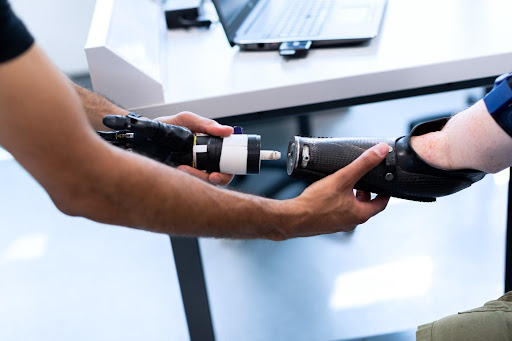Navigating the world with cerebral palsy (CP) can present a unique set of challenges. But as technology progresses, new developments are making life simpler and more enjoyable for those with cerebral palsy. In this article, we delve into the latest innovations that are enhancing the quality of life for people living with cerebral palsy.
The Power of Assistive Technology
Assistive technology plays a pivotal role in enhancing the independence and overall life quality of individuals with cerebral palsy. These tech marvels range from simple, everyday tools to high-tech devices designed to meet specific needs.
Smart Home Devices
Intuitive and user-friendly, smart home devices are revolutionizing the way people with cerebral palsy interact with their environment. Using voice commands or smartphone controls, individuals can manipulate lights, thermostats, door locks, and even kitchen appliances. These devices create a seamless living experience, minimizing physical strain and fostering independence.
Communication Apps and Devices
For people with cerebral palsy, communication can be a major hurdle. That’s where augmentative and alternative communication (AAC) devices step in. These devices — often in the form of tablet apps — use symbols, images, and text-to-speech technology to help people express themselves. Latest additions like predictive text and machine learning capabilities make these devices faster and more intuitive.
Wearable Technology: A Game Changer for Cerebral Palsy
Wearable technology is pushing boundaries and redefining possibilities for people with cerebral palsy.
Exoskeletons and Robotic Aids
The combination of robotics and wearable technology is creating exciting opportunities for mobility enhancement. Robotic exoskeletons and braces provide guided movement, helping individuals with cerebral palsy achieve tasks like walking, standing, or even climbing stairs. These devices can improve muscle strength, posture, and overall physical health.
Smart Clothing
Integrating technology into clothing, smart garments are making waves in the realm of cerebral palsy care. These wearables can monitor vital signs, body movements, and provide feedback, which can be instrumental in therapy and daily life management.
Virtual Reality: The New Frontier in Cerebral Palsy Rehabilitation
Virtual reality (VR) is no longer the stuff of sci-fi movies. It’s paving the way for groundbreaking therapies for individuals with cerebral palsy.
VR Rehabilitation Programs
Virtual reality therapies offer immersive environments for individuals with cerebral palsy to practice motor skills in a safe, controlled setting. These programs can be customized according to each person’s abilities and needs, transforming the rehabilitation process into a more engaging and enjoyable experience.
Emerging Technologies in Cerebral Palsy Care
The world of technology is ever-evolving, constantly introducing innovative solutions for people with cerebral palsy.
3D Printing
3D printing has the potential to create personalized assistive devices and prosthetics at a fraction of the traditional cost. Custom-made items tailored to an individual’s body and needs can vastly improve comfort and functionality.
Artificial Intelligence (AI) and Machine Learning
AI and machine learning hold the promise of creating highly personalized care plans. By analyzing an individual’s specific needs and progress, these technologies can adjust therapy plans in real-time, resulting in more efficient and effective treatments.
In Conclusion
As we journey further into the age of technology, its impact on the lives of those with cerebral palsy becomes more profound. The exciting wave of innovations is breaking down barriers and fostering independence, communication, and an enhanced quality of life. The realm of cerebral palsy and technology is undoubtedly a promising frontier, filled with the potential to redefine the lives of those living with cerebral palsy. The future of cerebral palsy care is here, and it’s bright with the glow of technology.


Would love information on latest CP treatments. My 5 year old grandson walks and babbles, occasionally can say a word. Has ability to understand what we are saying. Would love any info into treatments that could help